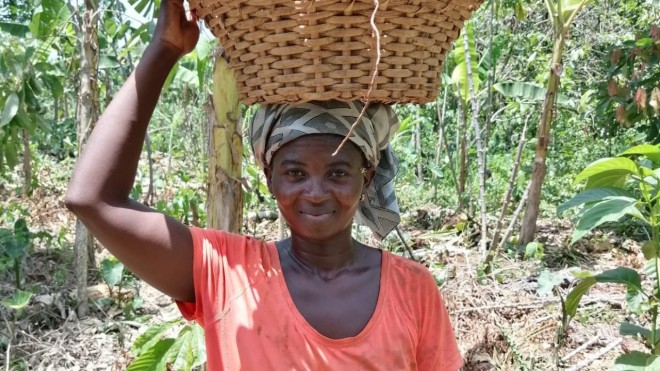
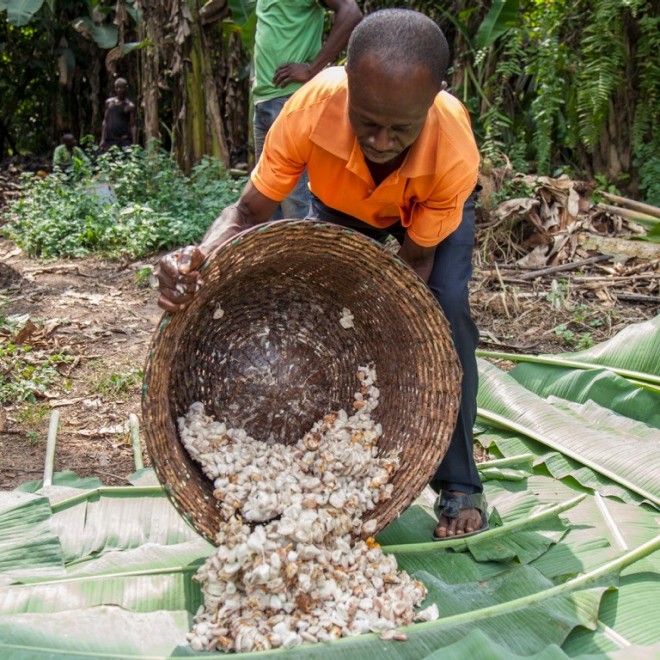
Small-scale farmers in Ghana face serious challenges. Because of non-sustainable farming methods, the yields of their cacao crops are increasingly poor. The growing use of agricultural chemicals intended to counter this trend has had little effect. Meagre incomes and the abusive child labour practices they give rise to are just some of the complex problems facing the cacao industry in Ghana, not to mention the struggle to integrate women. Clearing land to create fertile new cacao plots is the primary culprit for Ghana’s alarming deforestation rate, which is one of the highest in the world.
The small-scale farmer cooperative Kuapa Kokoo, which means «the best of the best», is charting a different course, one that does not involve land clearing or exploiting the weak.
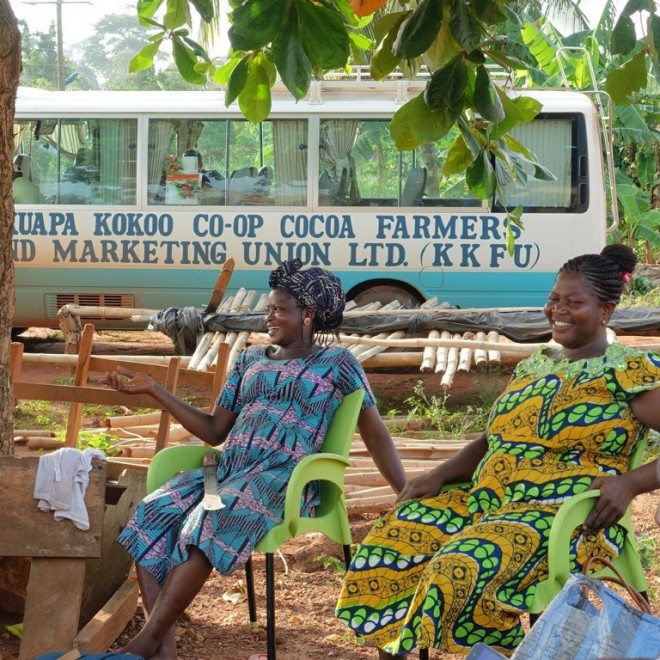

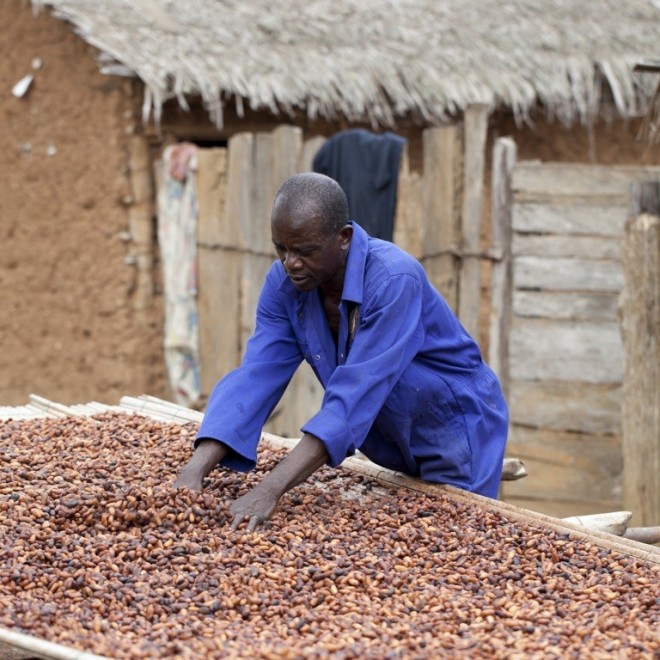
Together with Kuapa Kokoo and their project partners, HALBA supports the Sankofa project – a world first – in combining dynamic cacao agroforestry with CO2 offsetting. This combination adheres to the strictest certification standard in the world, the Gold Standard, thus ensuring comprehensive sustainable development. The productivity of the cacao plots is increased by converting monoculture into highly diversified mixed cultivation, which, in turn, increases earning opportunities for farmers. Thanks to the creation of a network for selling by-products harvested from cacao agroforestry plots, such as corn, legumes, manioc and yam, the project also supports food security and the independence of farmers and their families.
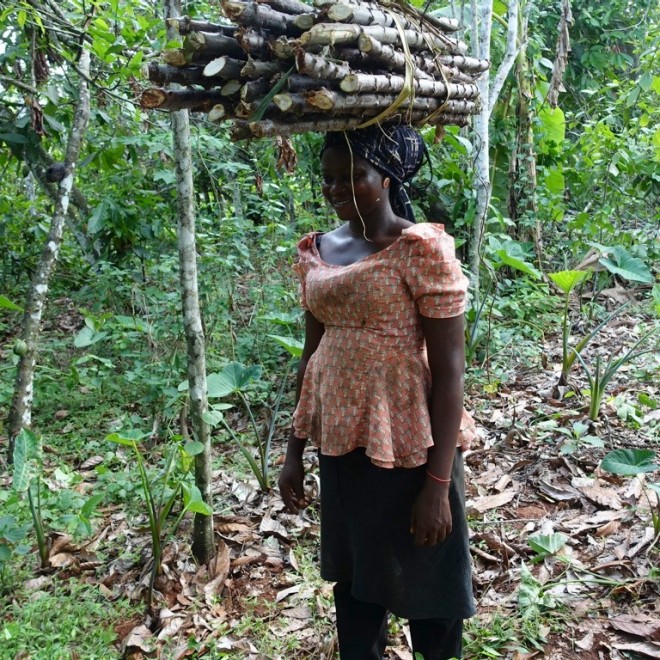
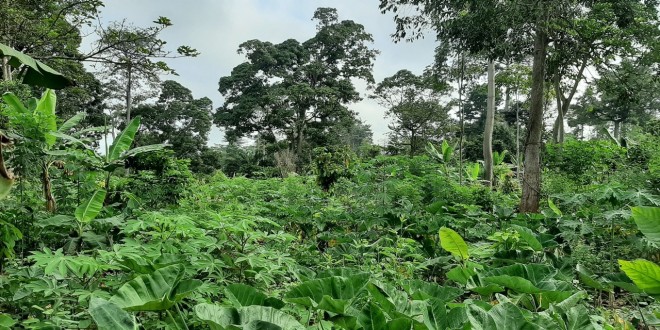
Higher incomes for farmers are a step in the right direction in the fight against another big problem in West Africa: child labour. Up to two million children work in the cacao industry alone. HALBA supports the partner cooperative in its commitment to fighting child labour and supporting women. The additional income earned from the higher cacao yields and the sale of by-products from the agroforestry plots gives families new prospects and is often invested in school tuition.